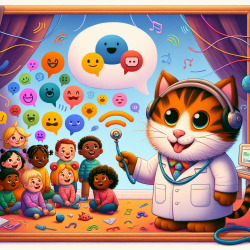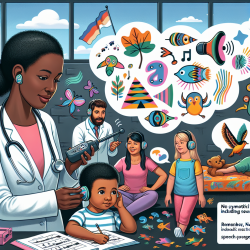Understanding the KiddyCat
The KiddyCat is a 12-item test designed to assess the speech-associated attitudes of preschool and kindergarten children who stutter. It provides clinicians with valuable information that can guide treatment and enhance the therapeutic process. According to the authors, the test can validly distinguish between children who do and do not stutter and help reduce negative speech-related beliefs that impede fluency.Key Findings and Their Implications
The research underscores the importance of addressing not just the speech disruptions but also the attitudes associated with speech. Here are some key findings and their implications for your practice:
- Attitudinal Insights: The KiddyCat reveals children's attitudes towards their speech, which can add direction and power to therapeutic procedures. This insight can help tailor client-specific treatments that address negative speech-related beliefs.
- Age and Gender Considerations: The study found no significant gender differences in KiddyCat scores among children who stutter. However, there were age-related differences in the non-stuttering group, suggesting that younger and older children may have different attitudinal responses.
- Clinical Utility: The KiddyCat can serve as a useful adjunct to the clinical assessment protocol, providing a more comprehensive understanding of a child's speech-associated attitudes.
Implementing KiddyCat in Your Practice
Integrating the KiddyCat into your therapeutic approach can significantly enhance your effectiveness. Here are some steps to get started:
- Administer the Test: Use the KiddyCat as part of your initial assessment to gauge the child's speech-associated attitudes.
- Interpret the Results: Analyze the test scores to identify specific attitudinal issues that need to be addressed in therapy.
- Tailor Your Approach: Develop individualized treatment plans that focus on both speech fluency and attitudinal adjustments.
- Monitor Progress: Use the KiddyCat periodically to track changes in the child's attitudes and adjust your therapeutic approach as needed.
Encouraging Further Research
While the KiddyCat provides valuable insights, further research is needed to fully understand its long-term efficacy and potential applications. We encourage practitioners to contribute to this growing field by conducting their own studies and sharing their findings.
To read the original research paper, please follow this link: KiddyCat: Communication Attitude Test for Preschool and Kindergarten Children Who Stutter by Martine Vanryckeghem and Gene J. Brutten (2007).










